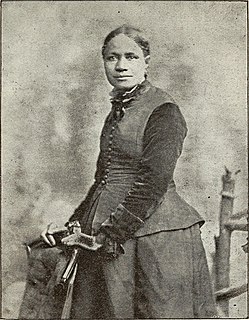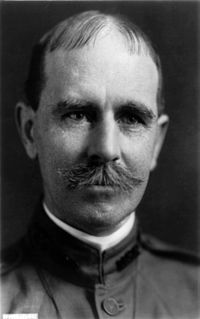A Quote by Lysander Spooner
If the jury have no right to judge of the justice of a law of the government, they plainly can do nothing to protect the people against the oppressions of the government; for there are no oppressions which the government may not authorize by law.
Related Quotes
Most codes extend their definitions of treason to acts not really against one's country. They do not distinguish between acts against the government, and acts against the oppressions of the government. The latter are virtues, yet have furnished more victims to the executioner than the former. Real treasons are rare; oppressions frequent. The unsuccessful strugglers against tyranny have been the chief martyrs of treason laws in all countries.
A government which can protect and defend its citizens from wrong and outrage and does not is vicious. A government which would do it and cannot is weak; and where human life is insecure through either weakness or viciousness in the administration of law, there must be a lack of justice and where this is wanting, nothing can make up the deficiency.
Jurors have found, again and again, and at critical moments, according to what is their sense of the rational and just. If their sense of justice has gone one way, and the case another, they have found "against the evidence," ... the English common law rests upon a bargain between the Law and the people: The jury box is where the people come into the court: The judge watches them and the people watch back. A jury is the place where the bargain is struck. The jury attends in judgment, not only upon the accused, but also upon the justice and the humanity of the Law.
Our government is the potent, the omnipresent teacher. For good or for ill it teaches the whole people by example. Crime is contagious. If the government becomes a lawbreaker, it breeds contempt for law; it invites every man to become a law unto himself; it invites anarchy. To declare that in the administration of the criminal law the end justifies the means - to declare that the Government may commit crimes in order to secure the conviction of a private criminal - would bring terrible retributions.
The prestige of government has undoubtedly been lowered considerably by the prohibition law. For nothing is more destructive of respect for the government and the law of the land than passing laws which cannot be enforced. It is an open secret that the dangerous increase of crime in this country is closely connected with this.
You know, if government were a product, selling it would be illegal. ... Government contains impure ingredients - as anybody who's looked at Congress can tell you. ... government practices deceptive advertising. And the merest glance at the federal budget is enough to convict the government of perjury, extortion, and fraud. ... in a nutshell: government should be against the law. Term limits aren't enough. We need jail.
The most sensible and jealous people are so little attentive to government that there are no instances of resistance until repeated, multiplied oppressions have placed it beyond a doubt that their rulers had formed settled plans to deprive them of their liberties; not to oppress an individual or a few, but to break down the fences of a free constitution, and deprive the people at large of all share in the government, and all the checks by which it is limited.
A famous, very often quoted phrase says: "That government is best, which governs least." I do not believe this to be a correct description of of the functions of a good government. Government ought to do all the things for which it is needed and for which it is established. Government ought to protect the individuals within the country against the violent and fraudulent attacks of gangsters, and it should defend the country against foreign enemies. These are the functions of government within a free system, within the system of the market economy.
Law and justice are from time to time inevitably in conflict ... . The jury ... adjusts the general rule of law to the justice to the particular case. Thus the odium of inflexible rules of law is avoided, and popular satisfaction is preserved ... That is what jury trial does. It supplies that flexibility of legal rules which is essential to justice and popular contentment.




































